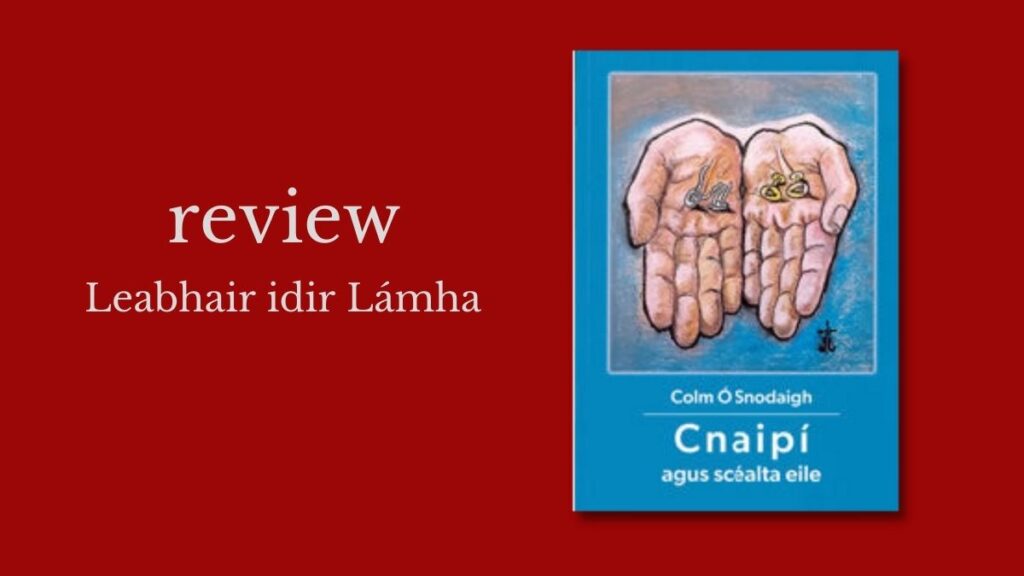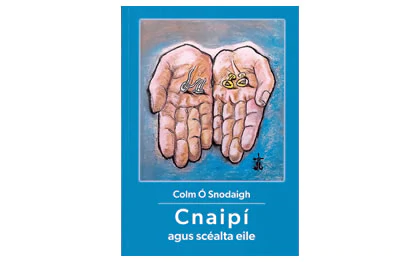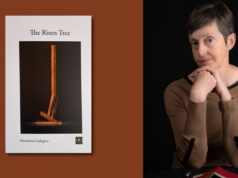
Cnaipí|Colm Ó Snodaigh|Coiscéim|Uimhir Coiscéim 6 660012 22025|€10
by Cathal Póirtéir
Colm Ó Snodaigh is best known as the flute player with Kíla, the energetic and imaginative group of musicians who have entertained audiences all over the world for the best part of forty years, but his talents go well beyond the group’s signature mix of Irish traditional and world music.
He has written and published four original books of fiction and non-fiction in Irish, and translated another two into Irish. Fresh off the printing press comes Cnaipí, a collection of contemporary short stories in which he again displays his versatility and talent as a writer.
There are thirteen stories in this collection, two of them are just half a page long and both are short reflections on the morning after the night before, somewhere between flash fiction and poetry.
Poetic
Most of the stories are much more substantial and the narratives longer and fuller but occasionally there are paragraphs that are notably poetic in their intense capture of emotions or places.
The themes for the stories are varied, urban and modern, peppered occasionally with freshly-minted Irish words that may not have found their way into the dictionaries yet but which are immediately understandable and add to the contemporary feel of the collection.
Some of Ó Snodaigh’s characters attempt to deal with broken or failing relationships, others with the death or absence of loved ones, with childlessness, substance abuse or personal frustration that sometimes erupts into sudden violence or destruction. I’ll highlight a few of the stories that I found most effective.

Cnaipí
In the title story, Cnaipí, the story begins with the main character suffering a heart attack which causes him to review his life, particularly his relationship with his estranged and deceased father.
While he was growing up, his father’s presence was a cause of unhappiness at home: problems with drink and anger management; financial irresponsibility and the evasion of family responsibility.
The son’s reassessment of his father and his faults runs parallel with his coming to terms with his own problematic behaviour and estrangement from his own wife. Helped by visits to a therapist, his understanding increases and allows him to take a more nuanced view of his parents’ relationship and his father’s behaviour.
Scéal Freddie
Scéal Freddie is the story of a young man who has become gradually more marginalised as he becomes more involved in the drug culture of Dublin. His mates excuse his sudden and inexplicable outbursts of anger as being part of him being a bit of a character.
Unfortunately he’s on a slippery slope to losing control; it’s too late by the time his friends realise. With hindsight and genuine friendship it might have been another story.
The author’s innovative language registers work very well here in conveying Freddie’s manic episodes.
Táibhsí
Táibhsí revisits old relationships that haunt the narrator. His first long and loving relationship was under pressure before he went off on a work assignment to Tel Avis, where he had a brief sexual relationship with a woman he met there.
His partner recognises betrayal in his voice, and ends the relationship. Even years later, married again and reasonably happily, he cannot help but be haunted by his first love and how he messed it up.
Urú
Soul searching of another kind is at the heart of Urú. A woman is in hospital after a serious operation and is trying to come to terms with the fact that she and her long-term partner will never have children, and she wonders how he will take the news.
The effects of the anaesthetic allow her mind to float back to the days of their early relationship before she wakes to face him and reality.
Resonance
A story which will resonate with anyone who feels they are not reaching their creative potential because of pressures of family life and lack of time is Am.
Narrated as a few days of a diary entry it captures a lifetime of wonderful ideas that never made it onto the page because there was never the time.
The story might be read as a bit of an apologia by the writer for not writing more but Colm Ó Snodaigh certainly has no reason to apologise for any of the stories in this collection. Here’s hoping he can find the time to write many more, and soon.

Cathal Póirtéir has specialised in researching, presenting and commissioning Irish interest material in various radio formats and in books, including history, literature and folklore in Irish and English, as well as current affairs and drama.












